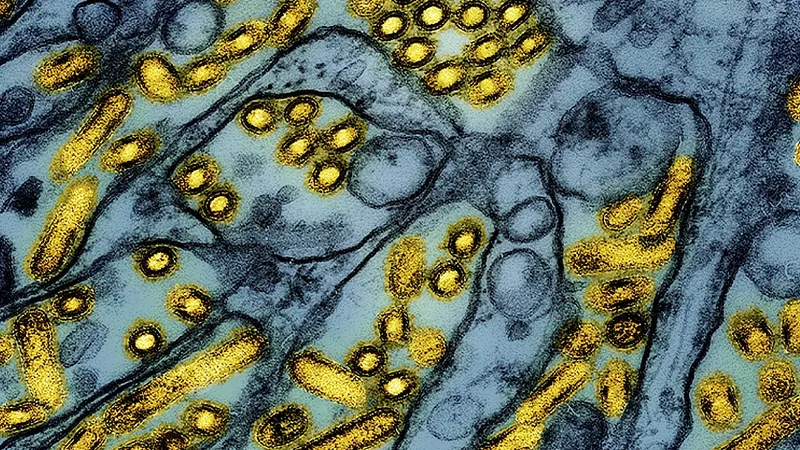
Unprecedented Bird Flu Case in Canada Sparks Urgent Global Health Concerns!
2024-11-28
Author: Rajesh
Unprecedented Bird Flu Case Sparks Global Alarm
A recent case of bird flu in Canada has ignited alarm bells among scientists and health authorities worldwide, particularly because it involves unusual changes in the virus that could pose a future threat to human health. Researchers are scrambling to understand whether these developments might signal an increased risk of the H5N1 strain transitioning from avian hosts to humans.
Historically, avian influenza, primarily affecting birds and rarely transmitting to humans, causes infection mostly in individuals with close contact to infected animals. However, recent incidents, such as a severe case involving a teenager in British Columbia, are prompting fears of potential shifts in the virus's behavior.
Critical Case Reported
Earlier this month, Canadian health officials reported the first human case of H5N1 in a teenager who was hospitalized in critical condition. The alarming aspect of this case lies in the mysterious nature of the contamination source and specific mutations identified in the viral genome. Dr. Marie-Anne Rameix-Welti from France’s Pasteur Institute noted significant concerns regarding the mutations on hemagglutinin—an essential protein for the virus’s ability to attach to and infect host cells, which are not commonly observed in H5 strains.
Link to Outbreak in British Columbia
Meanwhile, Professor Ian Brown from the UK's Pirbright Institute highlighted that the strain responsible for this case is linked to a larger outbreak in British Columbia, complicating the understanding of its transmission pathway. Currently, tests related to the case have returned negative results for other potential sources, yet ongoing vigilance is critical.
Global Bird Flu Scenario
The ongoing global scenario for bird flu presents an unsettling picture. According to the World Organisation for Animal Health, there were 88 reported outbreaks of highly pathogenic avian influenza in October 2024 alone. Approximately 1.7 million birds have died or been culled in response to this outbreak.
Over the past three to four years, researchers have observed significant genetic diversification of bird flu viruses, now affecting not only avian populations but also various mammal species. Alarmingly, in the US, about 675 dairy herds across 15 states have been impacted since March, leading to 55 confirmed human cases, primarily among farm workers; notably, the first pediatric case in California was reported last week, although that child showed mild symptoms without evidence of person-to-person transmission.
Situation in Europe and Monitoring Efforts
In Europe, the situation remains relatively contained with no reported human cases, but the arrival of migratory birds this autumn signals a higher risk period for outbreaks, particularly in domestic populations.
Experts agree that while the current threat to the general public is considered low, continuous monitoring is essential. As More cases may increase the chance for genetic mutation, which could potentially allow the virus to spread among humans, the implications for public health could be dire.
Conclusion and Future Precautions
As we navigate this evolving crisis, the global community must focus on preventing the rapid spread of bird flu in animal populations while preparing for any potential outbreaks among humans. The precautionary measures taken now could be vital in deferring a future pandemic scenario linked to avian influenza. Keep an eye on this unfolding story—it's one that could change our understanding of viral transmission forever!


 Brasil (PT)
Brasil (PT)
 Canada (EN)
Canada (EN)
 Chile (ES)
Chile (ES)
 España (ES)
España (ES)
 France (FR)
France (FR)
 Hong Kong (EN)
Hong Kong (EN)
 Italia (IT)
Italia (IT)
 日本 (JA)
日本 (JA)
 Magyarország (HU)
Magyarország (HU)
 Norge (NO)
Norge (NO)
 Polska (PL)
Polska (PL)
 Schweiz (DE)
Schweiz (DE)
 Singapore (EN)
Singapore (EN)
 Sverige (SV)
Sverige (SV)
 Suomi (FI)
Suomi (FI)
 Türkiye (TR)
Türkiye (TR)